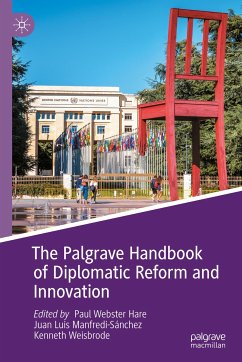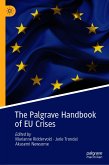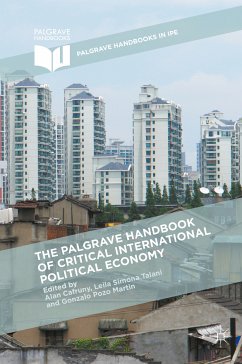In this handbook, a group of 40 scholars and practitioners from some 30 countries takes a critical look at the contemporary practice of diplomacy. Many assume diplomacy evolves naturally, and that state- and non-state actors are powerless to make significant changes. But Diplomacy's methods, its key institutions and conventions were agreed more than six decades ago. None take account of the opportunities and vulnerabilities presented by the Internet. Diplomacy is now a neglected global issue.
The COVID pandemic and the invasion of Ukraine have highlighted some of the problems of diplomatic dysfunction. Beyond identifying current problems diplomacy is facing, the book also seeks to identify some practical options for reform and innovation. How might a process of reform be agreed and implemented? What role might the United Nations, regional organizations and Big Tech play? How can new norms of diplomatic behavior and methods be established in a multipolar, digital world where diplomacy is seen as less and less effective?
Paul Webster Hare is Senior Lecturer in International Relations at the Frederick S. Pardee School of Global Studies, Boston University, USA. He was a diplomat for 30 years and British ambassador to Cuba from 2001 to 2004.
Juan Luis Manfredi-Sánchez is Prince of Asturias Distinguished Visiting Professor at the School of Foreign Service, Georgetown University, USA, and Professor at the University of Castilla-La Mancha, Spain.
Kenneth Weisbrode is Assistant Professor of History at Bilkent University, Turkey.
Dieser Download kann aus rechtlichen Gründen nur mit Rechnungsadresse in A, B, BG, CY, CZ, D, DK, EW, E, FIN, F, GR, HR, H, IRL, I, LT, L, LR, M, NL, PL, P, R, S, SLO, SK ausgeliefert werden.
Es gelten unsere Allgemeinen Geschäftsbedingungen: www.buecher.de/agb
Impressum
www.buecher.de ist ein Internetauftritt der buecher.de internetstores GmbH
Geschäftsführung: Monica Sawhney | Roland Kölbl | Günter Hilger
Sitz der Gesellschaft: Batheyer Straße 115 - 117, 58099 Hagen
Postanschrift: Bürgermeister-Wegele-Str. 12, 86167 Augsburg
Amtsgericht Hagen HRB 13257
Steuernummer: 321/5800/1497
USt-IdNr: DE450055826
Bitte wählen Sie Ihr Anliegen aus.
Rechnungen
Retourenschein anfordern
Bestellstatus
Storno









